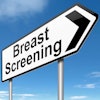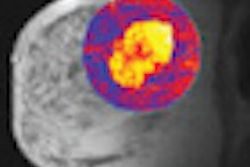The American College of Radiology (ACR) and the Society of Breast Imaging (SBI) have taken issue with a study in the British Medical Journal that suggests declining breast cancer mortality rates are due more to improvements in treatment and the efficiency of healthcare systems than mammography screening.
The ACR and SBI said that while improvements in therapy likely have played a role in the decrease in breast cancer deaths, therapy cannot cure advanced cancers.
"Early detection via mammography is clearly the major reason for the decrease in deaths in the U.S.," their statement read. "This decrease in deaths in conjunction with the onset of screening confirms the favorable results of randomized trials, case-control studies, and large population-based evaluations of mammography screening."
The two organizations also asserted that the mortality data in the study are "contaminated" with deaths attributable to breast cancer diagnoses that occurred before screening was introduced in Europe.
Sweden introduced mammography screening in 1986, but not all women received a mammogram that year. "It takes time to invite the population to screening," according to the statement. "Full implementation didn't occur until 1992 to 1993."
In the BMJ study, lead author Dr. Philippe Autier, research director at the International Prevention Research Institute in Lyon, France, said, "Our findings don't support the mass screening of women and show that screening by itself has little detectable impact on mortality due to breast cancer."
In an exclusive interview with AuntMinnieEurope.com, Autier advised radiologists to give much greater consideration to other emerging diagnostic methods, particularly MRI, although he conceded that worries persist about breast MRI's cost-effectiveness.
The ACR and SBI continue to recommend that women get annual mammograms starting at age 40. Those with a family history of breast cancer should speak with their doctor about possibly being screened even earlier, according to the organizations.



















